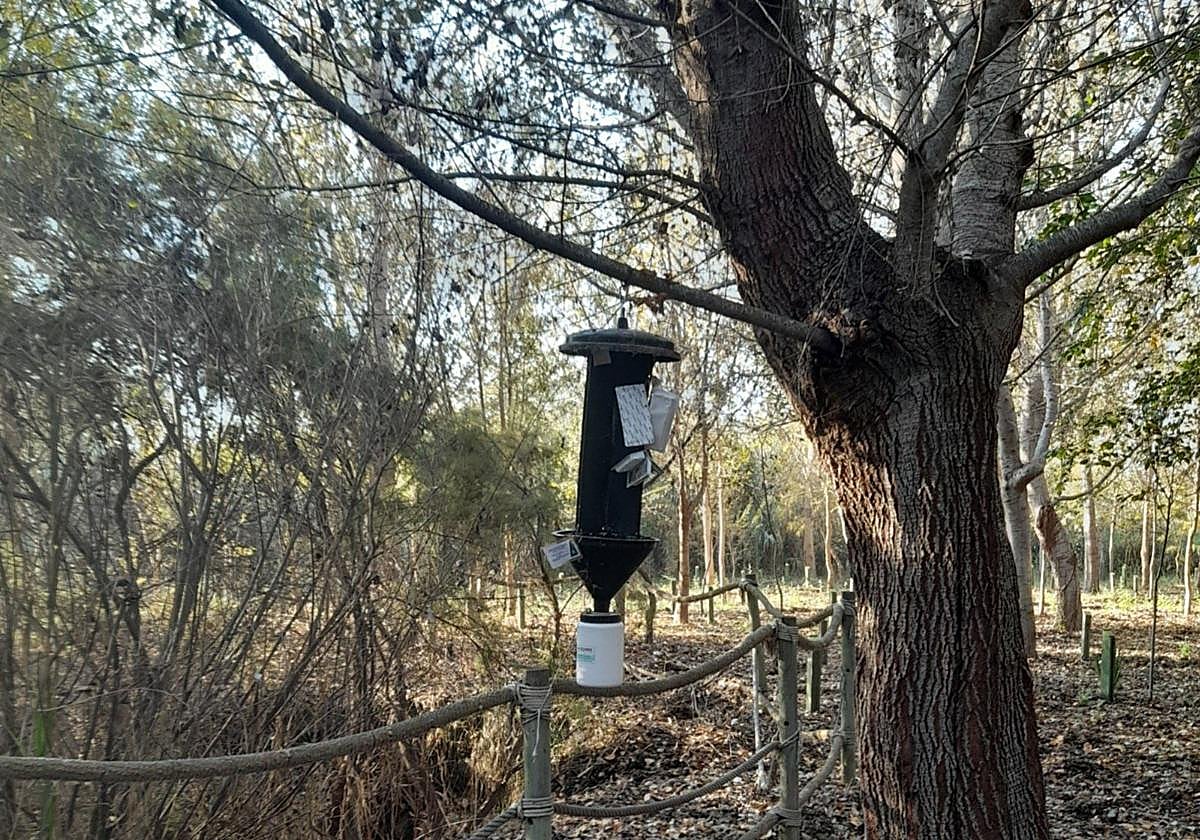Wednesday, 29 October 2025, 17:49
The Andalusian regional government is stepping up measures to combat a beetle plague affecting farms on Granada province’s Costa Tropical by installing ten new monitoring traps in addition to the more than thirty already in operation in the area.
The Crosstrap mini traps use natural attractants to capture the insect and are placed at strategic points from Motril to La Herradura, passing through Los Guájares, Río Verde and the Guadalfeo. The samples are collected and analysed every fortnight to evaluate the evolution of the pest and to adjust the control measures.
Compulsory phytosanitary measures are carried out on the affected farms, including selective or complete felling of infested trees and the elimination of the remains by controlled burning or shredding.
The beetle is difficult to control because it does not feed directly on the wood, but on the fungus it carries (Fusarium euwallaceae), which it introduces into the trees by digging tunnels in the trunk. Technicians explain that the insect can remain hidden for six to eight years before being detected, as its symptoms resemble those of other diseases.
“We need farmers to actively collaborate”
In a talk on the challenges facing the agricultural sector in Motril, plant health expert Ignacio Henares highlighted the importance of detecting the pest in time and monitoring it. “We need farmers to collaborate actively,” he said.
Agricultural associations are confident in the work being carried out by the Andalusian administration according to Juan Camacho, spokesperson for subtropical crops at the Coordinadora de Organizaciones de Agricultores y Ganaderos (COAG). He says that although the situation is worrying, the regional government is acting efficiently: “We have every confidence in the Junta,” he explained.
